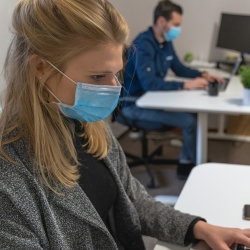May 19, 2022
Reinventing procurement for a post pandemic world
 Most businesses have undergone some form of digital transformation over the last two years simply to remain afloat. This has typically involved a total shift to the cloud, the relocation of inhouse comms rooms to co-location facilities, or incorporating remote login functionality into core IT systems to support home/hybrid working. This also boosted the demand for cloud computing courses. Whilst 5G, all fibre broadband and cloud computing have been gaining traction for a while, the pandemic has given agile working a turbocharge. This change has resulting in businesses relocating to smaller premises with flexible, more appealing leasing contracts. Hybrid working has also affected many internal departments, none more so than procurement which has been totally transformed (more…)
Most businesses have undergone some form of digital transformation over the last two years simply to remain afloat. This has typically involved a total shift to the cloud, the relocation of inhouse comms rooms to co-location facilities, or incorporating remote login functionality into core IT systems to support home/hybrid working. This also boosted the demand for cloud computing courses. Whilst 5G, all fibre broadband and cloud computing have been gaining traction for a while, the pandemic has given agile working a turbocharge. This change has resulting in businesses relocating to smaller premises with flexible, more appealing leasing contracts. Hybrid working has also affected many internal departments, none more so than procurement which has been totally transformed (more…)

















 Microsoft’s new
Microsoft’s new 


 The pandemic has not led to mass unemployment as many feared, but has instead driven wider shifts that have increased employment among younger women, but pushed many men and older workers out of the labour market altogether, according to new research.
The pandemic has not led to mass unemployment as many feared, but has instead driven wider shifts that have increased employment among younger women, but pushed many men and older workers out of the labour market altogether, according to new research. 
 British workers took the seventh lowest number of sick days in Europe last year, according to new
British workers took the seventh lowest number of sick days in Europe last year, according to new 
 New research from
New research from 
 The latest research from
The latest research from 






